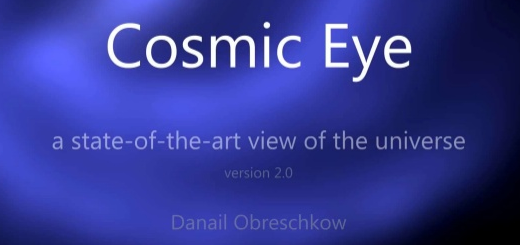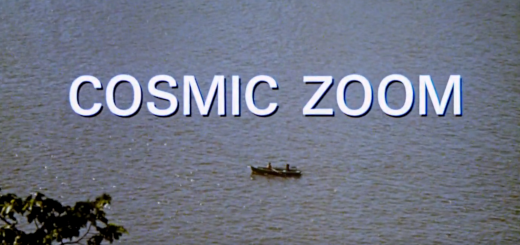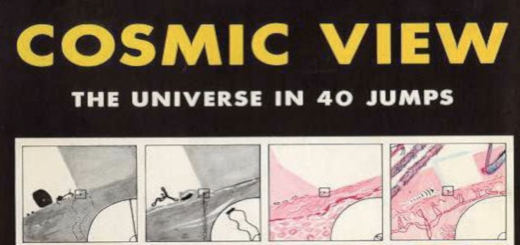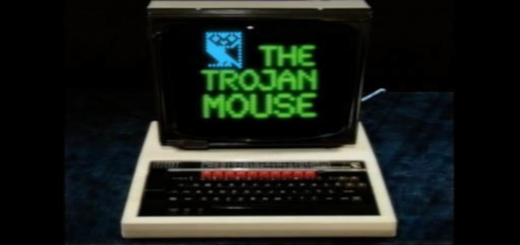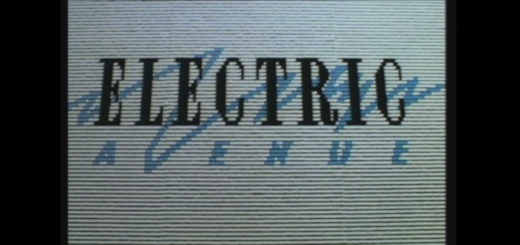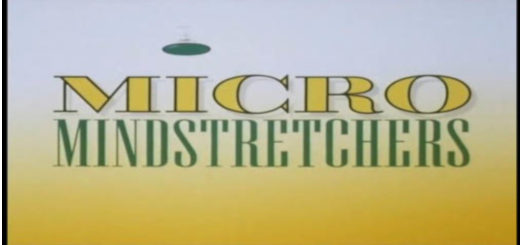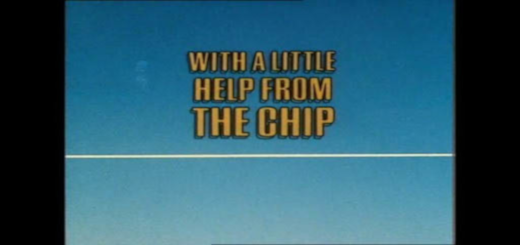Monthly Archive: Dezembro 2020
A state-of-the-art view of the Universe
Cosmic Eye is a short film and iOS app, developed by astrophysicist Danail Obreschkow. It shows the largest and smallest well known scales of the universe by gradually zooming out from and then back into the face of a young lady called “Louise”. According to the developer, the film and app were inspired by the essay Cosmic View (1957) and the short films Cosmic Zoom (1968) and Powers of Ten (1977), but use state-of-the-art know-how and new scientific … Ler mais
Offers a state of the art, computer generated journey through the universe, and tries to pinpoint the role of human beings cohabitating within its vastness
Cosmic Voyage is a 1996 short documentary film produced in the IMAX format, directed by Bayley Silleck, produced by Jeffrey Marvin, and narrated by Morgan Freeman. The film was presented by the Smithsonian Institution‘s National Air and Space Museum, and played in IMAX theaters worldwide. The film is available in the DVD format.
Cosmic Voyage has a format similar to Eva Szasz’s Cosmic Zoom, and Charles and Ray Eames‘s classic Powers of Ten educational … Ler mais
This short animation transports us from the farthest conceivable point of the universe to the tiniest particle of existence, an atom of a living human cell
Cosmic Zoom is a 1968 short film directed by Eva Szasz and produced by the National Film Board of Canada. It depicts the relative size of everything in the universe in an 8-minute sequence using animation and animation camera shots.
The film starts with an aerial image of a boy rowing with his dog in a boat on the Ottawa River. The movement then freezes and the view slowly zooms out, revealing more of the landscape all the … Ler mais
This unique book takes you on a graphic journey through the universe, to the edge of infinity in one direction and to the nucleus of the atom in the other
Cosmic View: The Universe in 40 Jumps is a 1957 book by Dutch educator Kees Boeke that combines writing and graphics to explore many levels of size and structure, from the astronomically vast to the atomically tiny. The book begins with a photograph of a Dutch girl sitting outside a school and holding a cat. The text backs up from the original photo, with graphics that include more and more of the vast reaches of space in which the girl … Ler mais
A special programme marking a decade of the BBC Computer Literacy Project
A special programme in 1992 looks back ten years to the 1980s BBC Computer Literacy Project.
1 programmeFirst broadcast: 5th April 1992
Retrospective on the Project
BBC1 Series 1 Episode 1First broadcast 5th…
Ler mais
About computers in society
A series of ten programmes about computers in society, with Fred Harris.
2 series, 15 programmesFirst broadcast: 24th October 1988
Electric Avenue – Series 1
1. The
…
Ler mais
A Schools Television series
A Schools Television series presented by Carol Vorderman.
This encouraged schools to experiment in various specific ways.
1 series, 10 programmesFirst broadcast: 9th May 1988
1. Desktop Publishing: The Problem
BBC2 Series 1 Episode …
Ler mais
Six programmes on how micro-technology can help disabled people to live more independent lives
Six programmes looking at the way computer based technology helped people with various kinds of disability.
1 series, 6 programmesFirst broadcast: 30th August 1985
1. Christopher’s Magic Cupboard
BBC2 Series 1 …
Ler mais
A personal view of computers in education
A questioning, almost iconoclastic series looking critically at the claims made for computers in education and at how the reality fell short of the hype. Introduced by Tim O’Shea.
1 series, 6 programmesFirst broadcast: 25th April 1985
…
Ler mais
A regular look at the world of information technology, broadcast live
Following the two successful Making the Most of the Micro – Live! ‘specials’ in 1983, BBC2 transmitted Micro Live, a regular magazine series to keep people up to date with technological developments. Fronted by Ian McNaught Davis, Lesley Judd and Fred Harris, Micro Live ran for three years.
Instead of a structured approach, Micro Live was reactive, with up to the minute news and many explanations of how things work. Occasional but regular reports came from an … Ler mais
A six-part examination of the office technology of today and tomorrow
Ian McNaught Davis examines and explains the changing world of the office and shows how new technology is altering how people work.
1 series, 6 programmesFirst broadcast: 12th April 1984
1. Office on the Move
BBC1 Series 1 Episode 1First broadcast 12th April 1984, 23:15Duration: 24:28
1: Office on the Move : The combination of ever cheaper computers and improved telecommunications has produced a …
Ler mais
An introduction to the world of robotics
This series examined one important aspect of computing – robotics – in other words how the computer can monitor and control things. Again there was a mix of real world examples – many from America, practical demonstrations and a “hands on” approach to coding.
The BBC robot ‘buggy‘ was marketed for d-I-y enthusiasts. Ian McNaught Davis was again the main presenter.
1 series, 5 programmesFirst broadcast: 2nd March 1984
…
Ler mais
In a live edition of Making the Most of the Micro, Ian McNaught-Davis is joined in the studio by an audience of micro users and a team of experts
The massive interest after the first two series led the production team to produce Making the Most of the Micro – Live! – a two hour BBC1 special where viewers’ questions were answered and demonstrations of new things were shown live on air. During the programme hackers broke into the live demonstration of electronic mail. There was also a demonstration of the BBC’s Telesoftware Service.
Kenneth Baker, minister for Information Technology appeared to promote a national schools software … Ler mais
Brian Redhead examines some of the implications of the new technological revolution for people in industry today
This series aimed primarily at small businesses and further education colleges was fronted by the much respected Radio 4 ‘Today’ presenter Brian Redhead. It showed examples of what can be done by looking at companies which had embraced the new technology in manufacturing or services. A typical example was the new use of bar codes in Tesco‘s supermarkets.
1 series, 5 programmesFirst broadcast: 17th May 1981
…
Ler mais
